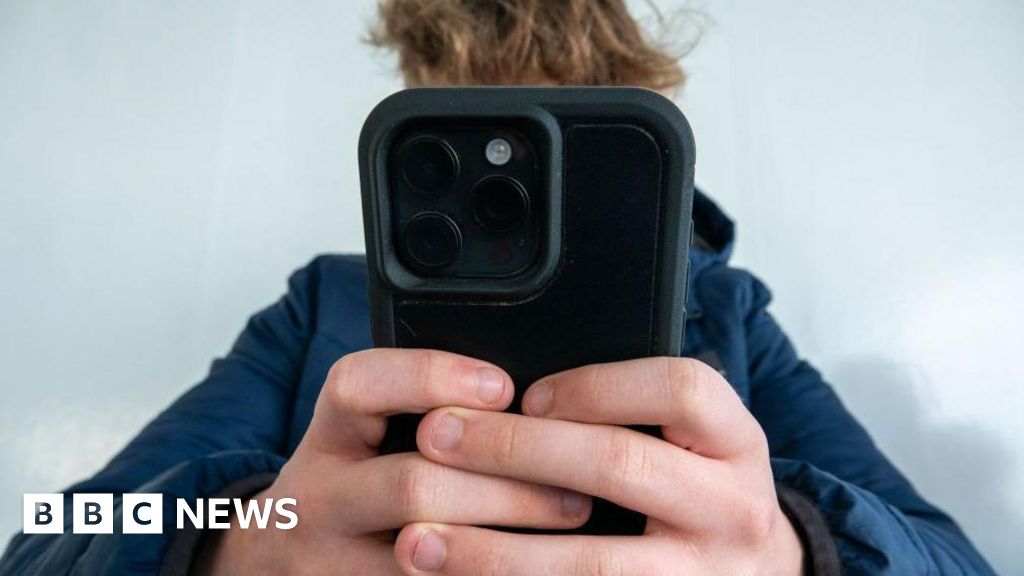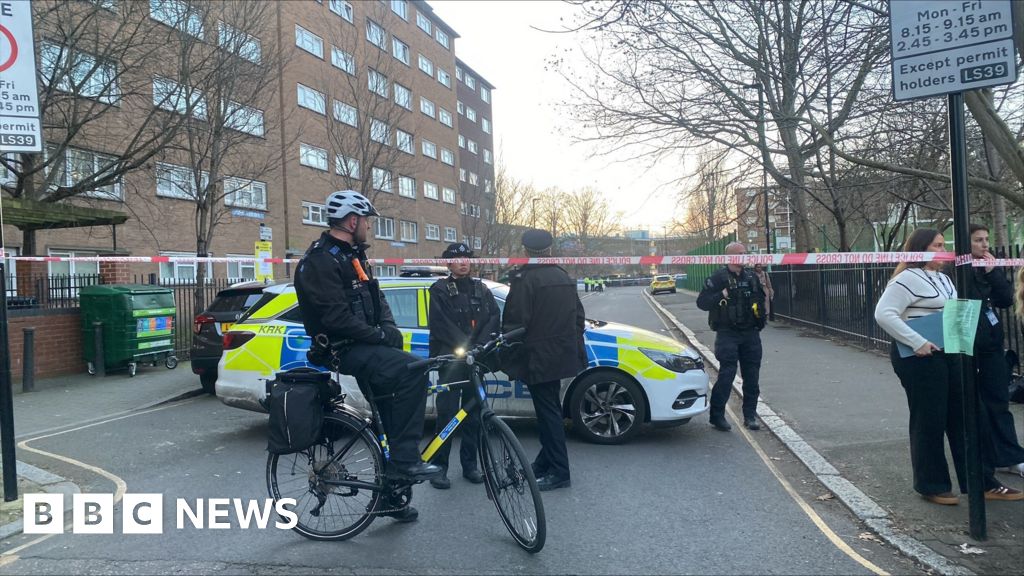News
Starmer and Italian PM to discuss migrant crossings

Prime Minister Sir Keir Starmer has said he is “interested” in learning about Italy’s scheme to send migrants rescued at sea to Albania to process their asylum claims, as he begins his first official visit to Rome.
The British leader is meeting Italian Prime Minister Giorgia Meloni on Monday.
Top of the agenda will be migration and how the UK can learn from Italy – the European Union member receiving the highest number of migrant arrivals, but which has recently seen a dramatic fall.
Sir Keir said he wanted to understand how Italy had achieved that reduction, adding: “I’ve long believed that prevention and stopping people travelling in the first place is one of the best ways to deal with this particular issue.”
Sir Keir and Meloni are prime ministers on opposite political sides. One started off in politics by joining the young socialists and now leads a Labour government in the UK, while the other began with young neo-fascists and now helms a right-wing coalition in Italy. Both, however, are keen to build on a crucial European relationship.
At Monday’s meeting, the pair will discuss what is known as irregular migration, among other issues, as both countries aim to reduce arrivals by sea.
On the continent, Frontex, the EU’s border force, has calculated a 64% drop this year in those making the perilous crossing from north Africa to Italy.
Just over 43,000 have arrived so far this year, according to the United Nations, compared to a total of almost 158,000 in 2023. Some try to continue their route through France and up to Britain.
The UK is struggling to respond to the migrant crisis in the English Channel, with arrivals from France up on last year. Eight people died on Sunday when a boat capsized in the Channel.
Central to the fall in crossings to Italy are financial deals struck with Tunisia and Libya – where most people depart from for Europe.
The EU paid Tunisia €105m (£88m) in 2023 to boost border security and train up its coastguard. Italy supplied the country with patrol vessels and gave its government another €100m to support small companies and invest in education and renewable energy.
Meloni also signed a major gas deal with Libya and Italy is training and equipping the Libyan coastguard.
The agreements echo the EU’s strategy with Turkey at the height of the 2016 migration crisis, when the bloc gave Ankara €6bn to boost border patrols with Greece. It led to a dramatic fall in departures.
But the deals to keep migrants in north Africa carry huge controversy.
Human Rights Watch has accused Italy and the EU of being “complicit” in crimes carried out against migrants in Libya, reporting cases of “murder, enforced disappearance, torture, enslavement, sexual violence, rape, and other inhumane acts” in the north African country.
The EU’s outgoing foreign policy chief Josep Borrell reportedly wrote of the “incomprehension” of some member states over the deal struck by the European Commission President Ursula von der Leyen with Tunisia, due to a sharp deterioration in its democracy.
Tunisia’s President Kais Saied has suspended parliament, while opposition MPs, journalists and lawyers have been arrested.
Some members of the European Parliament have complained of “bankrolling dictators across the region”.
In Rome, Sir Keir is likely to hear about the range of measures Italy is taking to counter irregular migration, including reception centres it is building in neighbouring Albania, which are due to open later this year after some delays.
The two centres, funded and managed by Italy, could hold up to 36,000 migrants per year. While there, they will be able to apply for asylum in Italy. If refused, they will face deportation.
While the Albanian government has suggested that such a deal is only with Italy, its closest ally in Europe, Sir Keir has shown interest in the outsourcing model, holding talks with his Italian and Albanian counterparts at the European Political Community summit at Blenheim Palace in July.
Foreign Secretary David Lammy told the BBC on Sunday that the prime minister would discuss with Meloni the work Italy had done on migration, “particularly with Albania”.
Lammy said that because Italy’s arrival numbers had reduced, “we are interested” in discussing the country’s schemes, not just with Albania, but with Syria and Libya as well.
Alberto-Horst Neidhardt, a migration specialist at the European Policy Centre thinktank, said that “Britain is exposed to the consequences of decisions in the EU, without having a say – and that weakens its capacity to manage migration flows”.
“It was quite difficult for the previous British government to seek effective solutions with France – and so it makes sense to turn to Italy for this new prime minister.”
Meloni was probably Rishi Sunak’s closest ally in Europe. Both right-wingers, their political chemistry was clear, with Sunak calling her “a lovely person” after their last meeting at the G7 summit.
His successor may not be such a natural political fit for Meloni – but she is arguably the EU’s strongest right-wing leader and Starmer knows that to solve the migration challenge, all roads lead to Rome.
News
Does Australian politics still have a problem with women?

The Liberal Party elected its first female leader at a time of crisis. She lasted less than a year.
source
News
Apple takes legal action in UK data privacy row

Apple is taking legal action to try to overturn a demand made by the UK government to view its customers’ private data if required.
The BBC understands that the US technology giant has appealed to the Investigatory Powers Tribunal, an independent court with the power to investigate claims against the Security Service.
It is the latest development in an unprecedented row between one of the world’s biggest tech firms and the UK government over data privacy.
In January, Apple was issued with a secret order by the Home Office to share encrypted data belonging to Apple users around the world with UK law enforcement in the event of a potential national security threat.
Data protected by Apple’s standard level of encryption is still accessible by the company if a warrant is issued, but the firm cannot view or share data encrypted using its toughest privacy tool, Advanced Data Protection (ADP).
ADP is an opt-in feature and it is not known how many people use it.
Last week, Apple chose to remove ADP from the UK market rather than comply with the notice, which would involve creating a “backdoor” in the tool to create access.
Apple said at the time that it would never compromise its security features and it was disappointed at having to take the action in the UK.
The UK’s order also angered the US administration with President Donald Trump describing it to The Spectator as “something that you hear about with China”.
Tulsi Gabbard, US head of intelligence, said she had not been informed in advance about the UK’s demand.
She described it in a letter as an “egregious violation” of US citizens’ rights to privacy and that she intended to find out whether it breached the terms of a legal data agreement between the US and the UK.
The FT, which first revealed Apple’s legal action, reports that the tribunal case could be heard in the next few weeks, but may not be made public.
The Home Office refused to confirm or deny that the notice issued in January exists. Legally, this order cannot be made public.
But a spokesperson said: “More broadly, the UK has a longstanding position of protecting our citizens from the very worst crimes, such as child sex abuse and terrorism, at the same time as protecting people’s privacy.
“The UK has robust safeguards and independent oversight to protect privacy and privacy is only impacted on an exceptional basis, in relation to the most serious crimes and only when it is necessary and proportionate to do so.”
Apple declined to comment.
News
Boy, 16, dies after being shot in south London

A 16-year-old boy has died after being shot in an “enormously shocking incident” in south London, the Metropolitan Police has said.
The teenager was pronounced dead at the scene in Paradise Road, Stockwell, after police were called at about 15:20 GMT to reports of a shooting.
Officers are working to identify the victim and contact his family. No arrests have been made.
Supt Gabriel Cameron said: “Our thoughts are with the young boy’s family at this devastating time.”
He added: “This is an enormously shocking incident which I imagine will cause huge distress to the local community.”
“Local officers are on the scene gathering CCTV and speaking to witnesses to piece together what has happened.
“They will be supported by specialist homicide investigators shortly.”





